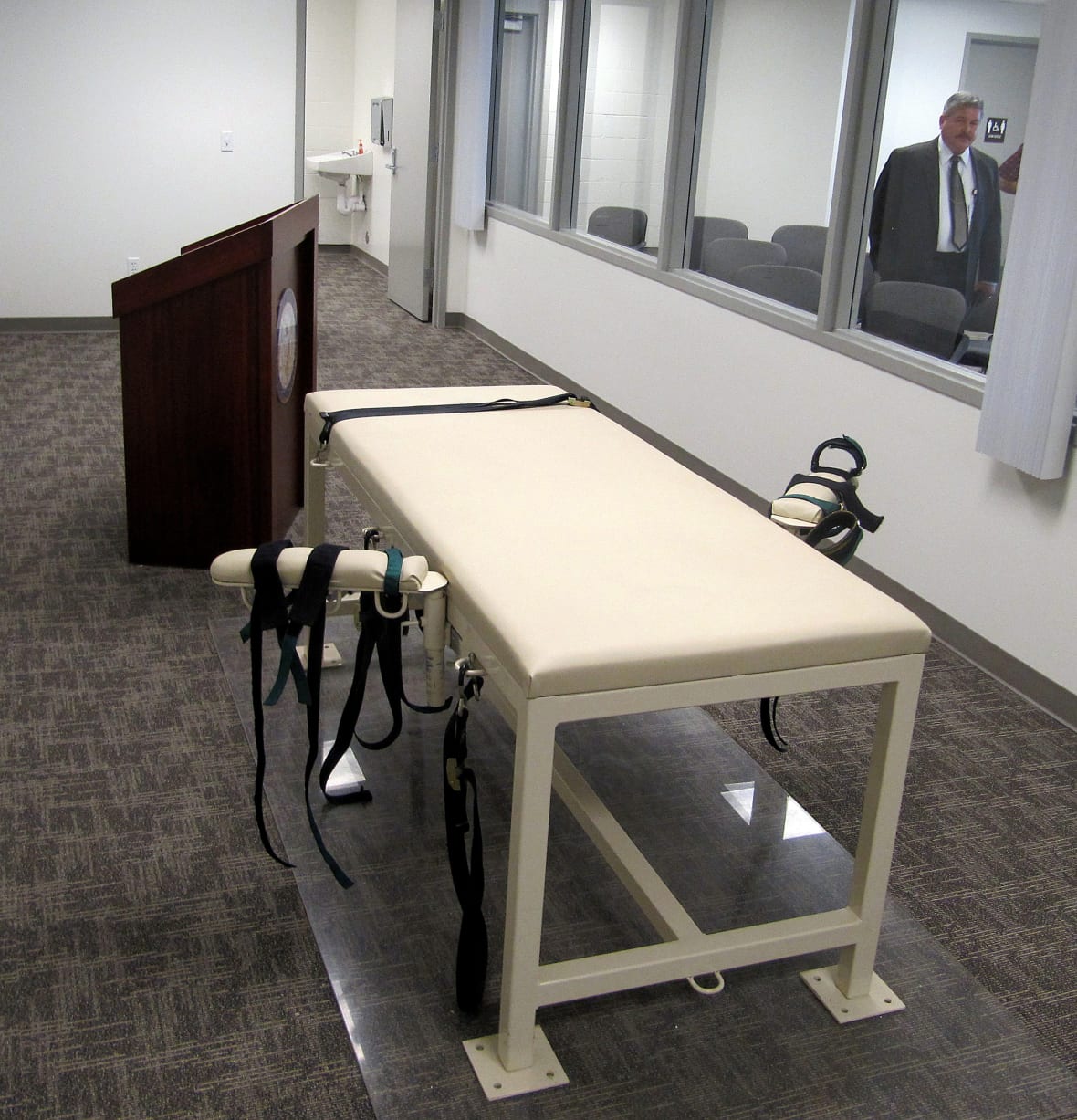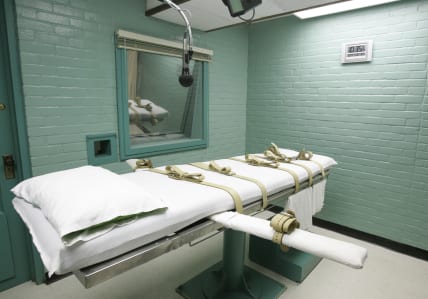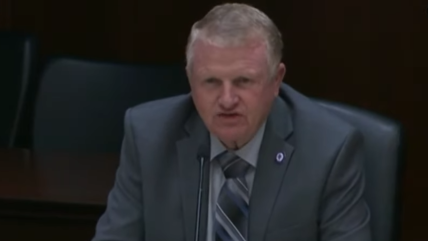By REBECCA BOONE Associated Press
BOISE, Idaho (AP) — Idaho is poised to allow firing squads to execute condemned inmates when the state can’t get lethal-injection drugs, under a bill the Legislature passed Monday with a veto-proof majority.
Firing squads will be used only if the state cannot obtain the drugs needed for lethal injections — and one death row inmate has already had his scheduled execution postponed multiple times because of drug scarcity.
Idaho previously had a firing squad option on the books but has never used it. The option was removed from state law in 2009 after the U.S. Supreme Court upheld a method of lethal injection that was commonly used at the time.
 Security Institution Warden Randy Blades stands on the other side of the execution chamber on Oct. 20, 2011 at the Idaho Maximum Security Institution in Boise, Idaho. (AP Photo/Jessie L. Bonner, File)
Security Institution Warden Randy Blades stands on the other side of the execution chamber on Oct. 20, 2011 at the Idaho Maximum Security Institution in Boise, Idaho. (AP Photo/Jessie L. Bonner, File)Only Mississippi, Utah, Oklahoma and South Carolina currently have laws allowing firing squads if other execution methods are unavailable, according to the Death Penalty Information Center. A judge has put South Carolina’s law on hold until a lawsuit challenging the method is resolved.
Gov. Brad Little, a Republican, has voiced his support for the death penalty but generally does not comment on legislation before he signs or vetoes it.
Sen. Doug Ricks, a Republican who co-sponsored the bill, told his fellow senators on Monday that the state’s difficulty in finding lethal injection drugs could continue “indefinitely” and that he believes death by firing squad is “humane.”
“This is a rule of law issue — our criminal system should work and penalties should be exacted,” Ricks said.
But Sen. Dan Foreman, also a Republican, said firing-squad executions would traumatize the people who who carry them out, the people who witness them and the people who clean up afterward.
“I’ve seen the aftermath of shootings and it’s psychologically damaging to anybody who witnesses it,” Foreman said. “The use of the firing squad is, in my opinion, beneath the dignity of the state of Idaho.”
The bill originated with Republican Rep. Bruce Skaug, prompted in part by the state’s inability to execute Gerald Pizzuto Jr. late last year. Pizzuto, who now has terminal cancer and other debilitating illnesses, has spent more than three decades on death row for his role in the 1985 slayings of two gold prospectors.
The Idaho Department of Correction estimates that it will cost around $750,000 to build or retrofit a death chamber for firing squad executions.
Idaho Department of Correction Director Jeff Tewalt last year told lawmakers there would likely be as many legal challenges to planned firing squad executions as there are to lethal injections. At the time, he said he would be reluctant to ask his staffers to participate in a firing squad.
“I don’t feel, as the director of the Idaho Department of Correction, the compulsion to ask my staff to do that,” Tewalt said.
Both Tewalt and his former co-worker Kevin Kempf played a key role in obtaining the drugs used in the 2012 execution of Richard Albert Leavitt, flying to Tacoma, Washington with more than $15,000 in cash to buy them from a pharmacist. The trip was carefully kept secret by the department but revealed in court documents after University of Idaho professor Aliza Cover sued for the information under a public records act.
Kempf was promoted to lead the Idaho Department of Correction two years later but now is the executive director of the Correctional Leaders Association. He said the execution process is always challenging for all involved, including the family members of victims. Those challenges could be amplified in firing squad executions, he said.
“I’ve got to say at the same time, my thoughts go to staff members that may have to carry out something, per law, that looks like putting someone to death,” Kempf told the AP during a phone interview earlier this month. “That is nothing I would assume any correctional director would take lightly, asking someone-slash-ordering someone to do that.”
Associated Press journalist Michael Tarm in Chicago contributed to this report.
TheGrio is FREE on your TV via Apple TV, Amazon Fire, Roku, and Android TV. Please download theGrio mobile apps today!
.png)











 English (US) ·
English (US) ·